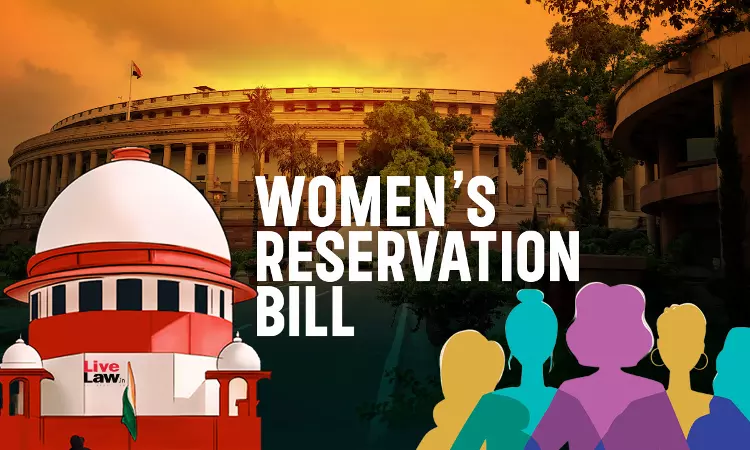Read What Supreme Court Told Centre About Women’s Reservation Bill One Month Ago
Awstika Das
19 Sept 2023 12:24 PM IST

Next Story
19 Sept 2023 12:24 PM IST
On the inaugural day (September 18) of the special session of the Parliament, the union cabinet reportedly approved the tabling of the women’s reservation bill. But lesser known is that one month ago, the Supreme Court had questioned the Central Government for not making its stand clear on the issue of women reservation.The Court asked the Central Government why it had not filed its...
